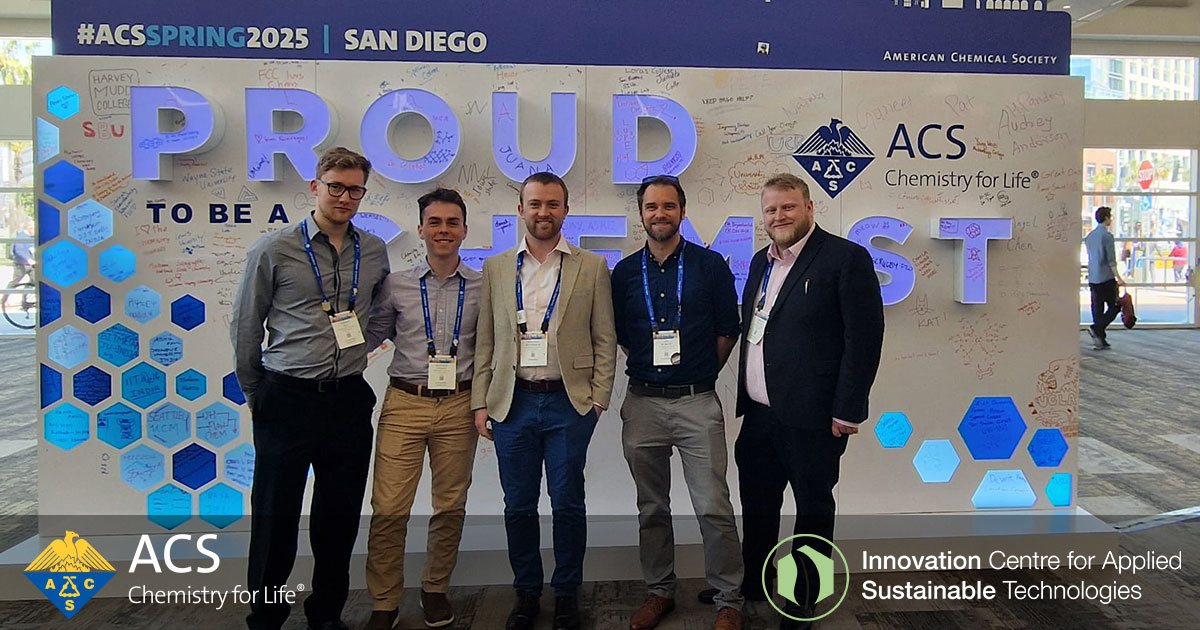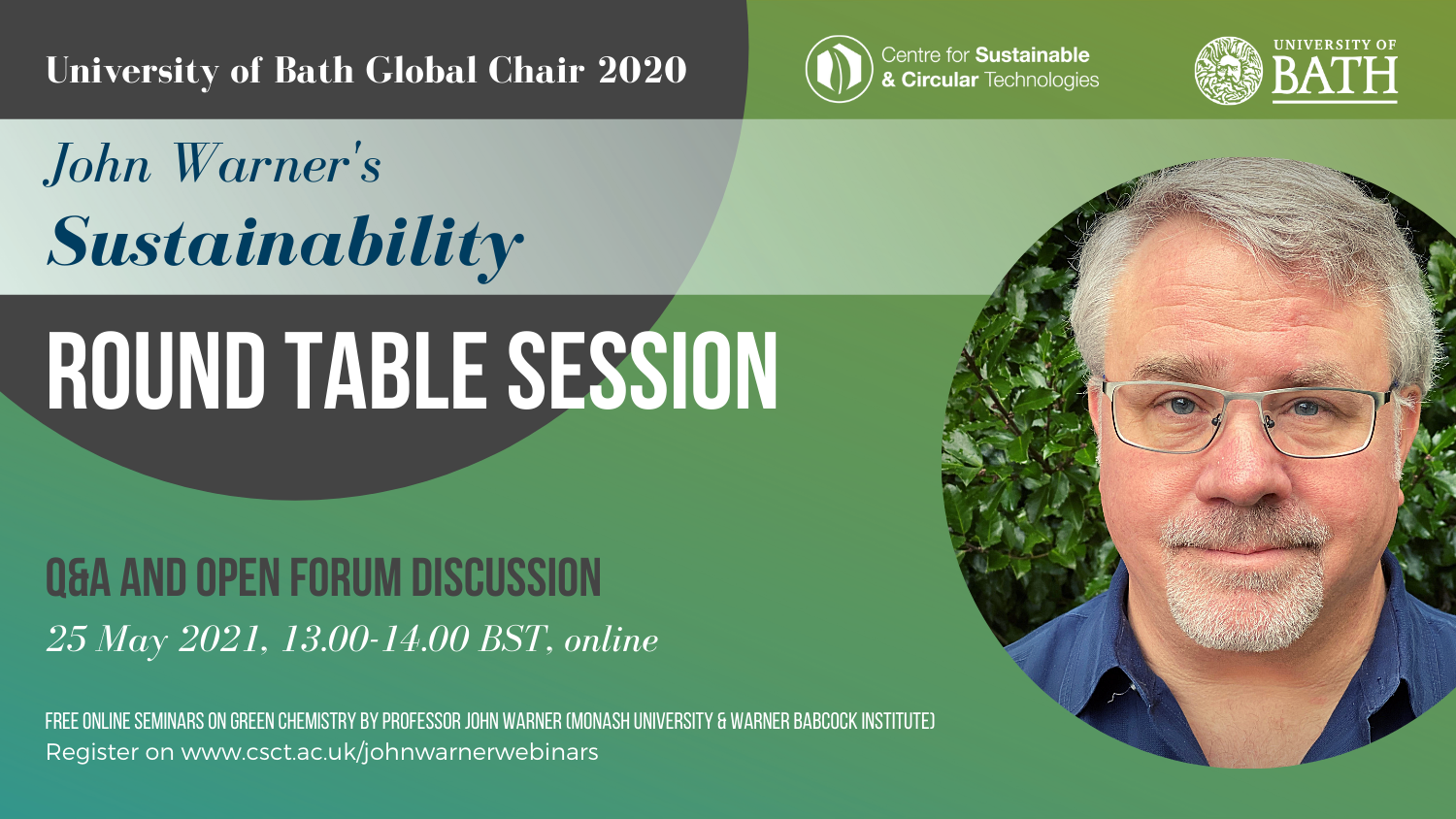
From Tacos to Trailblazing Chemistry: Bath Researchers Share Sustainable Innovations at ACS Spring 2025
San Diego served up more than sunshine and street food this March – it became the global stage for world-leading chemical research at ACS Spring 2025, one of the world’s premiere chemistry conferences hosted by the American Chemical Society.
Among the thousands of international scientists in attendance were five researchers from the University of Bath, representing the Innovation Centre for Applied Sustainable Technologies (iCAST) and the Bath Institute of Sustainability and Climate Change (ISCC). Their work sat right at home under this year’s theme: “Pushing Boundaries. Solving Global Challenges.”
A Global Platform for Sustainable Innovation
For Dr Jon Husband of iCAST, the opportunity to present at ACS Spring was more than just an academic milestone—it was a chance to join the global conversation on sustainable chemical technologies.
It was a privilege to be invited to present our research at one of the most prestigious chemistry conferences worldwide. The ACS Spring conference provided us an unrivalled platform for sharing our research with the global chemistry community. The conversations and connections made here often lead to unexpected research directions and partnerships that advance the field of sustainable chemical technologies and materials.
Dr Jon Husband
Dr Husband presented an innovative new method of recycling PMMA (commonly known as Perspex) using UV light at significantly lower temperatures, potentially cutting the energy demands typically associated with plastic recycling.
His iCAST colleague Dr Strachan McCormick focused on new catalysts for lactide polymerisation, a crucial step in improving the sustainability and efficiency of polylactic acid (PLA)—a leading biodegradable plastic.
Rising Researchers Take the Spotlight
Three PhD researchers from ISCC also presented their latest work:
- Matthew Cullen shared advances in recycling mixed plastic waste streams, a complex challenge critical to building a circular plastics economy.
- Andrew Kay showcased novel polymers derived from bio-based furanic monomers, aiming to replace fossil-based materials with renewable alternatives.
- Dominic Savage presented progress on polyethylene furanoate (PEF) synthesis and recycling, offering new pathways to sustainable packaging solutions.
For Cullen, the experience was eye-opening in more ways than one. With thousands of sessions spread across a packed five-day schedule, ACS Spring left a lasting impression:
The sheer scale of the conference was staggering—over a thousand pages of presentations and so many sessions running simultaneously, it was impossible to catch everything. I still think we gave it a good go though! Between long days of compelling science, regular caffeine breaks, and one very memorable taco spot (the owner remembered us!), we kept the energy up.
Matthew Cullen
One of the highlights for him was meeting the authors of a foundational paper in his field, opening the door for potential collaboration.
It can be easy as a PhD student to put on blinders and stay laser-focused on your niche. But ACS exposed us to such a breadth of research—it sparked new ideas for my own work that I wouldn’t have had otherwise. That kind of exposure is invaluable.
Matthew Cullen
More Than a Conference
The sentiment was echoed by fellow PhD attendees, who reflected on the mix of academic inspiration and unexpected moments of connection:
Whilst attending ACS Spring, I’m honestly not sure if I consumed more tacos, coffee, or polymer chemistry. There was always a brilliant talk I was buzzing to get to. Presenting my work was fantastic—I got great feedback and suggestions I’m genuinely excited to try. But for me, the real highlight was the deep conversations with other researchers, sometimes even in the nearest bar. I’ve come back to Bath overflowing with ideas… and a new appreciation for Mexican food.
Dominic Savage
Bridging Research and Real-World Impact
Our Centre for Doctoral Training (CDT) in Sustainable Chemical Technologies has long championed the integration of academic research with real-world applications. Our partnership with the Innovation Centre for Applied Sustainable Technologies (iCAST) exemplifies this commitment—bringing together early-stage researchers and applied innovation to tackle pressing global challenges in sustainability, materials science, and the circular economy.
Events like ACS Spring 2025 showcase just how powerful this collaboration can be: empowering researchers at every level to share, grow, and make a global impact.







